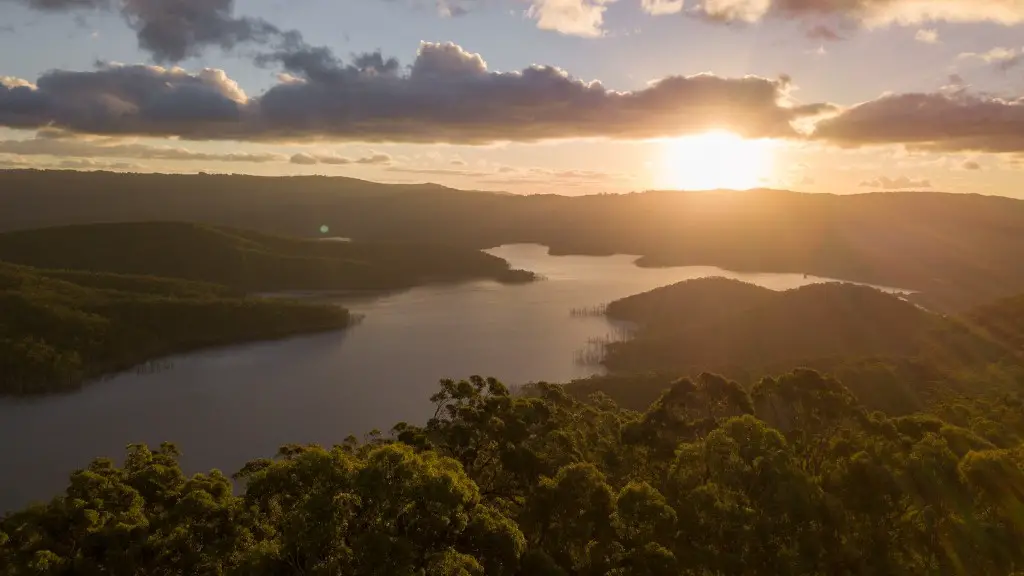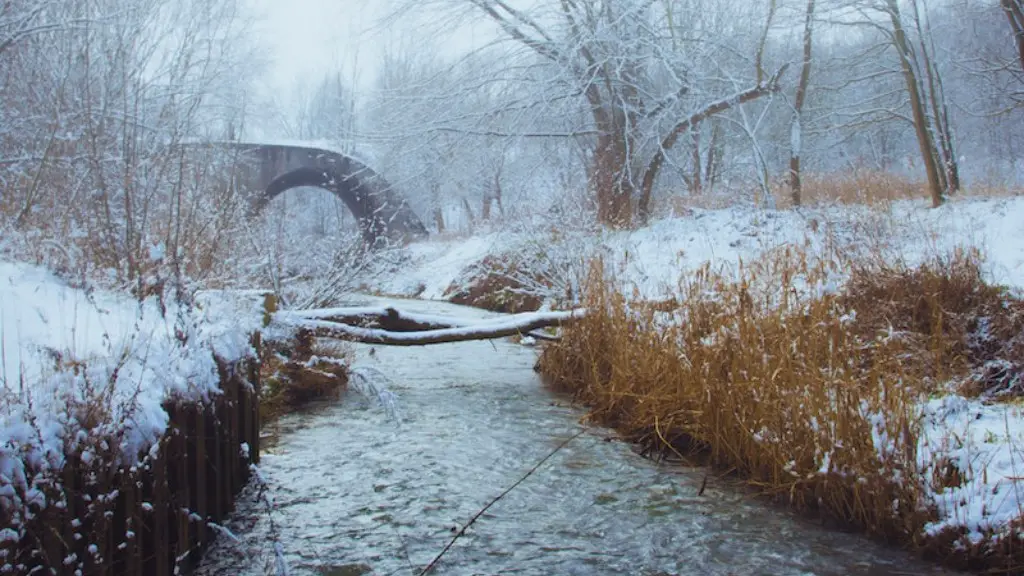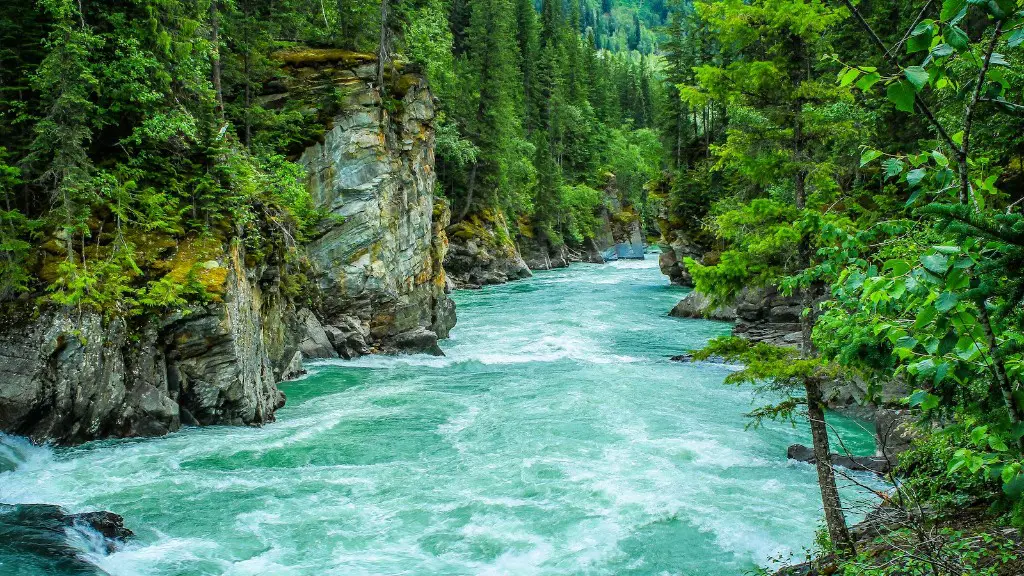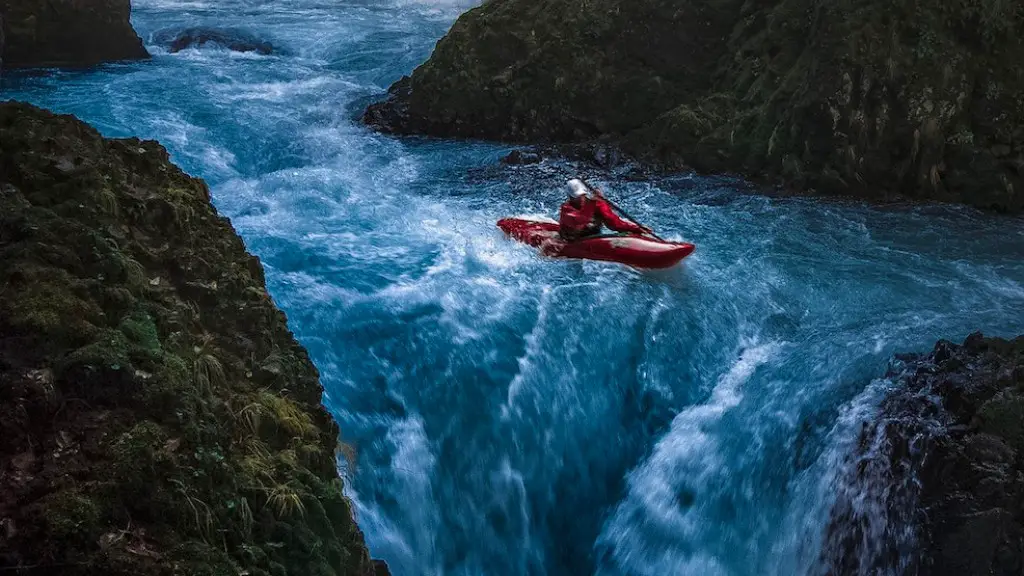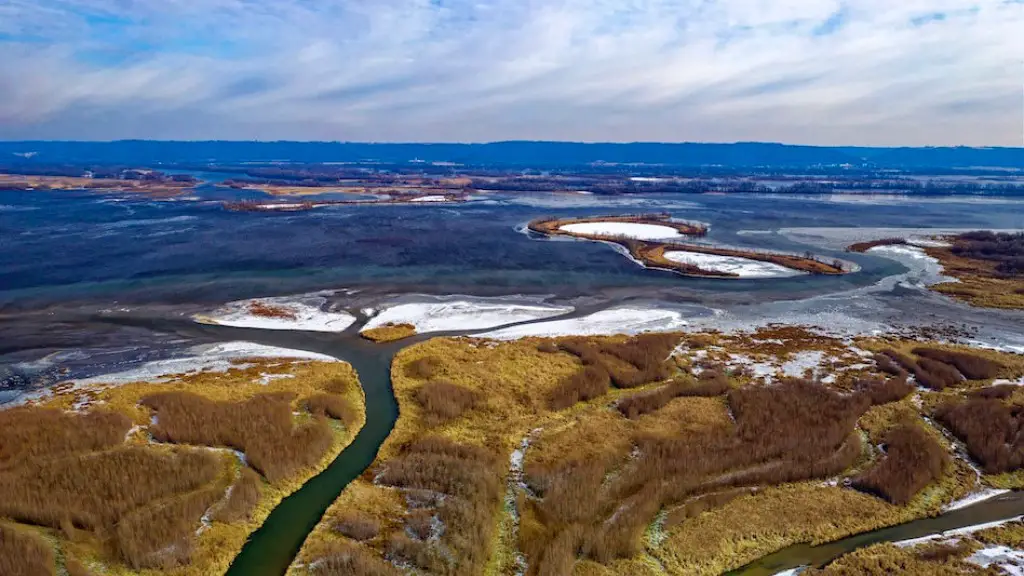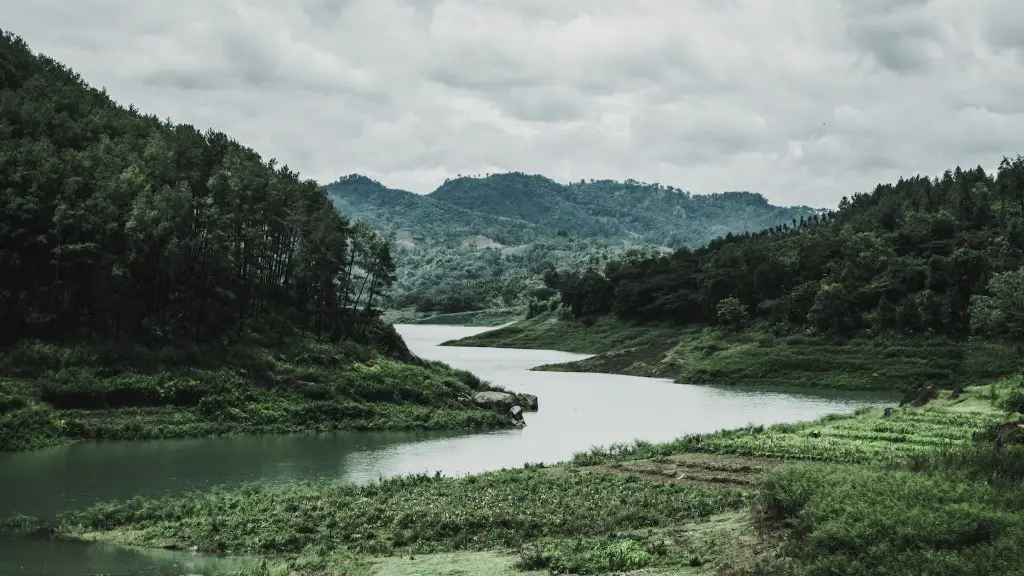The Mississippi River is a mighty force of nature – stretching more than 2,300 miles as it winds its way through a total of 10 states in the US, before finally making its way to the Gulf of Mexico. With such a vast expanse of water, it stands to reason that many people would assume that swimming in the Mississippi River would be an ideal way to cool off in the hot summer months. Unfortunately, the truth is more complicated, and the answer to the question of whether one can safely swim in the Mississippi River depends on a variety of factors.
The most sizeable issue confronting would-be swimmers in the Mississippi River is the water quality. It is well known that the river is subject to high levels of industrial and agricultural pollution, as well as discharges from industrial and residential facilities. Therefore, despite the fact that the EPA does regulate pollution in U.S. waterways, health organizations still discourage people from swimming in the Mississippi River due to its widely reported poor water quality.
Even if it were hypothetically possible to avoid the pollutants present in the water, there are still other elements in the Mississippi to consider. This river is home to various types of fish, snakes and alligators, not to mention all of the debris that is deposited, making it dangerous to swim in any portion of the Mississippi. Additionally, the water levels along the river vary significantly, as do local regulations which prohibit swimming in certain sections at certain times.
Of course, it is possible that portions of the Mississippi River are cleaner than others, therefore while complete immersion may be ruled out, there likely remains the potential for some to engage in activities like boating and fishing. Even in the face of potential safety risks, the riverside communities have sprung up quite rapidly along the banks of the Mississippi, offering travelers a great deal of nature-based entertainment.
While it is unlikely that swimming or completely submerging oneself in the Mississippi River is a particularly wise decision, there remain a variety of ways to appreciate the river without putting oneself at risk. This could include activities like kayaking, which allows participants to experience the power of the Mississippi, while still keeping a safe distance from the water.
Safety of the Mississippi River
As previously mentioned, due to the severe pollution which negatively impacts the water quality in the Mississippi, swimming is highly discouraged. Much of this pollution stems from the large number of industrial facilities, combined with agricultural runoff. Thus, the river is subject to a regular influx of contaminants, rendering it potentially unsafe for swimming.
In order to combat this, the Clean Water Act is in effect and sets certain water-quality standards, which are enforced by the EPA and various health organizations, who discourage people from swimming in the Mississippi River. However, enforcement is largely limited within the vast region in which the river meanders.
Of course, there is also the risk of coming into contact with aquatic creatures, such as fish, snakes and alligators, which can all inhabit the river. Additionally, there is a large amount of debris which can accumulate, resulting in the potential for injury or worse.
It is also worth noting that water levels, and even local regulations, vary significantly along different parts of the Mississippi, making it hard to know what conditions a swimmer may encounter. All in all, while swimming may be possible in certain areas and under certain conditions, it is still a risky venture.
Alternative Activities
Luckily, despite the river’s potential safety issues, there are still a variety of ways for people to appreciate the beauty of the Mississippi River without having to get in the water. Kayaks are a popular choice and allow participants to get close to the river without risking their health or safety. Additionally, the river’s shoreline is lined with beautiful scenery and numerous activities, from fishing to camping, are available for those wishing to explore the region.
For those who live near the river, there are various ways to enjoy it without having to actually swim in it. For example, attending one of the many music festivals held annually along the banks of the Mississippi is a great way to enjoy its splendor. Along similar lines, there are a host of different events designed to both entertain and educate visitors on the river and its multifaceted ecosystem.
Furthermore, many cities along the Mississippi River are home to a number of different attractions, such as museums, art galleries and zoos, which lends itself to a variety of enjoyable activities.
Buoys and Other Safety Measures
In addition to refraining from swimming in the Mississippi River, other measures must be in place to help protect people from the dangers of the river. Buoys are a popular choice, as they can be used to mark both safe and dangerous areas. Additionally, buoys may be used to mark channels, obstructions, points of interest and even local regulations.
Other safety measures include ensuring that all boats are equipped with a variety of safety gear, such as life jackets, fire extinguishers and a horn. In addition, many states have laws in effect which require all boats to be registered and inspected before they can be operated on the Mississippi River. It is also recommended that anyone operating a boat have basic safety training.
Signs may also be posted along the river or its shores to provide guidance in regards to safety and legal matters. This includes signage to indicate local laws, regulations and warnings of specific dangers, such as submerged obstacles or low-head dams.
Economic Benefits of the Mississippi River
The importance of the Mississippi River for both commerce and transportation should not be underestimated, with it representing the lifeblood of many businesses. With the environmental regulations in place, the Mississippi has seen its quality improve significantly and is now widely used for businesses, such as oil and gas production, transportation and tourism.
Despite its continued association with high levels of pollution, the Mississippi River is also a major recreational resource. While swimming is not heavily encouraged, many boaters still make use of it, as do anglers who fish its waters. In terms of tourism, many people visit the riverfront to take part in activities like camping and nature walks.
The development of the riverfront over the years has also been an integral component of some cities’ financial success. For example, Memphis’ tourist industry, which relies heavily on the Mississippi, was recently valued at more than $3 billion per year.
In addition to Memphis, many other major cities along the Mississippi benefit from the river’s natural beauty, with resorts and casinos proving to be particularly lucrative for business operators.
Conservation Efforts
Despite the various benefits of the Mississippi River, its ongoing conservation is still a major concern. Many conservation programs are in place in order to protect the river from further damage, and prevent existing environmental-protection regulations from being overridden.
The Mississippi River connects many different ecosystems and species, thus, protecting it is all the more important. The U.S. Fish and Wildlife Service is actively engaged in the preservation and restoration of habitats along the Mississippi, while the Conservation Reserve Program assists local authorities in their efforts to save species, such as the American burrowing crayfish.
In addition, the National Wildlife Federation is working to reduce nutrient runoff by partnering with farmers and landowners and educating them on best management practices, while the Environmental Protection Agency (EPA) has established plans and regulations to help protect the river, such as the Mississippi River Total Maximum Daily Load (TMDL) program.
Finally, the National Oceanic and Atmospheric Administration (NOAA) has been actively monitoring the river in recent years, in an effort to keep track of water levels, pollution and weather patterns.
